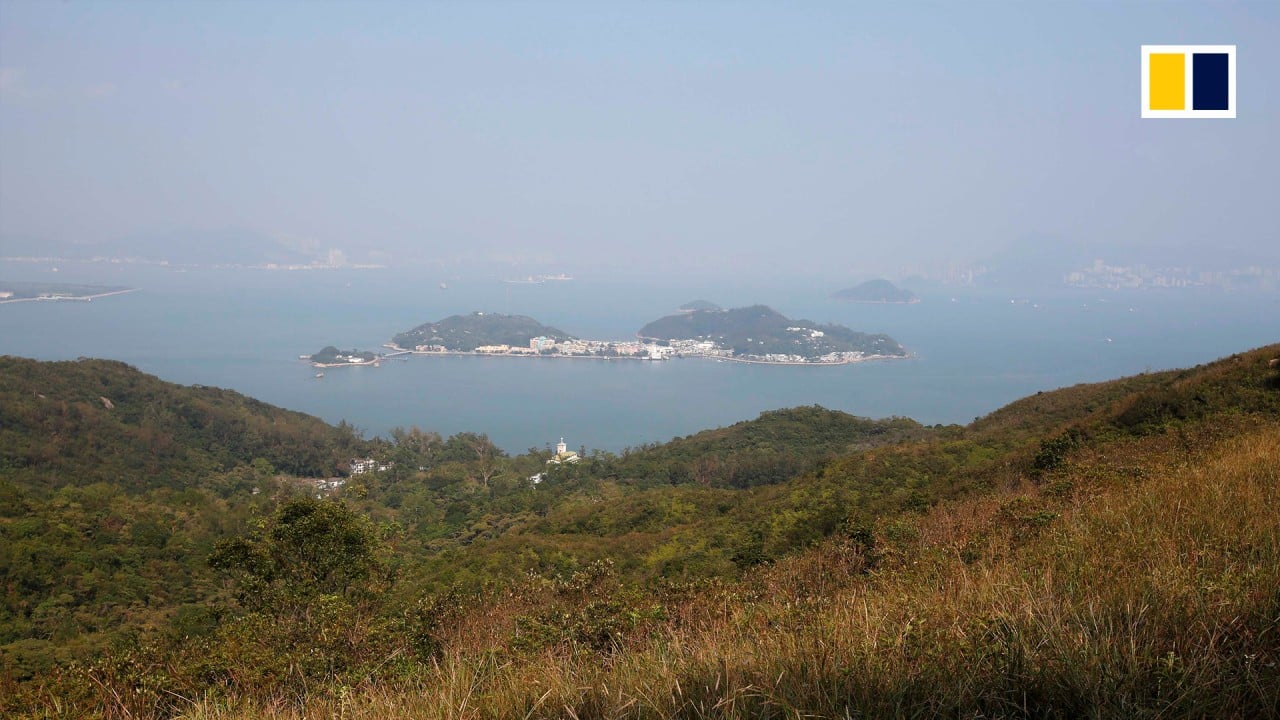
Hong Kong government should turn to private sector to help make Lantau Tomorrow Vision dream a reality, think tank says
- Our Hong Kong Foundation says officials should consider options after city’s cash reserves were battered by coronavirus
- First stage of Chief Executive Carrie Lam’s plan calls for building artificial islands covering 1,000 hectares
The scheme – which would initially involve building 1,000 hectares (2,470 acres) of man-made islands in the waters off Lantau Island, and a new transport network to create Hong Kong’s third business district and housing hub – would be the city’s most expensive infrastructure project.
Critics have said the scheme would deplete the city’s fiscal reserves and destroy the marine ecosystem in the area.
However, the think tank, set up by former chief executive Tung Chee-hwa, believes the social benefits of the project outweigh the massive cost despite the economic downturn.
“We have to think about the project in the context of the impact of Covid-19,” said Iris Poon Ho-yee, a researcher at the foundation. “We’re seeing quite high unemployment within the construction sector. Conventionally, in economics, we all know that infrastructure projects should especially be pursued during a downturn to lock in the lower price as well as to boost the economy by creating jobs.”
But Chan pledged the government would carry on with the Lantau scheme as it would contribute to long-term development.

02:43
Why Carrie Lam’s Lantau land reclamation plan is so controversial
To make up for the shortfall, the foundation said the government should consider seeking out private sector capital, issuing bonds or setting up an organisation to run the project in a similar vein to the airport authority.
The authority, which is fully owned by the government, has steered the construction of the airport and acted as operator with initial public funds and subsequent self-generated revenue.
In terms of bonds, the foundation suggested implementing a similar scheme to 2004, when the government launched its first securitisation bonds worth HK$6 billion, which gave investors a share of future toll revenue from the Tsing Ma Bridge and five government-owned tunnels.
Other options included following the model used by one portion of Sha Tin New Town, which saw developers pay for a 56-hectare parcel of land, but not for its infrastructure and reclamation costs. Developers were ultimately allowed to keep 30 per cent of the site to build private homes, and handed over the rest for public housing.
Will the private sector be bold enough to participate in this mega project? The land price will not be as high as anticipated
Andy Kwan Cheuk-chiu, director of the ACE Centre for Business and Economic Research, said the government should take into account Hong Kong’s ageing population and reconsider pushing through the Lantau Tomorrow Vision to avoid taking on unsustainable levels of debt.
In an earlier financial impact study commissioned by Greenpeace, Kwan estimated the project could drain the fiscal reserves within as little as seven years.
“The economy will face a shrinking labour force, so growth will be slow. The government will also collect less money from taxes,” he said. “There will also be more expenditure related to the elderly. Having less revenue and more expenditure will create a structural deficit problem, which will eat up the reserves.”
Kwan said he believed that an ageing population could weaken demand for housing and lead to a drop in prices, deterring the formation of public-private partnerships for the Lantau scheme.

“Will the private sector be bold enough to participate in this mega project?” he asked. “The land price will not be as high as anticipated.”
But Our Hong Kong Foundation’s Poon said she believed that building a land bank was necessary, and pointed out the government struggled to find land to build quarantine facilities as Hong Kong grappled with a surge in coronavirus infections.
“We really do need to build up capacity,” she said. “Lantau Tomorrow accommodates all kinds of purposes that we want to achieve in the future, be it decanting space, tackling ageing [in the population], needing bigger spaces [to live in], or developing our economy.”


